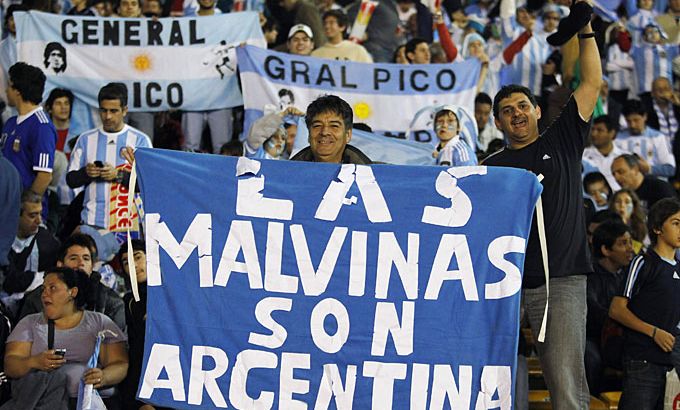
What underlies the Falklands dispute?
Tensions are growing between Britain and Argentina as the 30th anniversary of the war over the Falklands looms.
Two countries and two seemingly intractable positions.
The dispute between Argentina and Britain over the Falklands or Malvinas islands is at its bitterest for three decades.
|
“There are three elements that are very sensitive. First is the anniversary of the war, then we have the increment of the military British presence in the disputed area and finally the thorny issue of oil exploitation by the British in a unilateral manner which is not compatible with the UN resolution.” – Fernando Petrella, a former Argentinian envoy to the UN |
This year will mark the 30th anniversary of the war the two sides fought over the islands – a war in which more than 900 Argentinian and British soldiers were killed.
Argentina may have lost that war, but it has never given up its claim to the Malvinas, which have been under continuous British rule since 1833.
Sovereignty of the islands is even written in Argentina’s constitution.
But Britain has steadfastly refused to re-open sovereignty talks, saying the people of the Falklands say there is nothing to discuss.
The Falklands are a cluster of about 770 islands in the southern Atlantic Ocean. They lie about 483 kilometres off the Argentine coast and 13,000 kilometres away from mainland UK.
Its main link to the outside world is a weekly flight from Punta Arenas in Chile. But its route includes Argentinian airspace, which the government of Cristina Kirchner, the president of Argentina, has threatened to restrict.
On Tuesday, Kirchner said she would make a formal complaint to the UN following an announcement that Britain was sending a warship to the region.
In recent weeks, her government has also attempted to internationalise the issue further, and now Argentina’s cause is backed by virtually the whole of Latin America.
|
“Joint sovereignty is not an issue because the British will never agree to it. If there is oil around the islands maybe there can be some kind of joint venture which both sides could benefit from. This will be a step forward.” – Wilder Alejandro Sanchez, a research fellow at the Council on Hemispheric Affairs |
Bubbling under the surface is the issue of resources – particularly oil. Britain is seeking to tap into an estimated vast reserve under the Falklands sea bed.
Four areas that could potentially contain oil have been identified in the waters around the Falklands. Oil companies are hoping for 8.3 billion barrels this year. That is three times the UK’s reserves.
But what do the Falkland islanders themselves think about the prolonged dispute?
Barry Elsby, a member of the Falklands Legislative Assembly, had this to say:
“The UN also recognises the right for people to determine their own future and that’s all we’re asking for as Falkland islanders. Also, it is very difficult for us to enter into negotiations with a country who, because of their constitution, cannot agree on any settlement that gives up their claim to the Falkland Islands.”
So, where is the Falklands-Malvinas dispute heading?
Joining presenter Shihab Rattansi on Inside Story Americas are: Larry Birns, the director of the Council on Hemispheric Affairs, a non-profit organisation dedicated to monitoring Latin American affairs; Fernando Petrella, a former Argentinian ambassador to the UN; and Wilder Alejandro Sanchez, a research fellow at the Council on Hemispheric Affairs.
|
“In no way will this situation deteriorate to a point where armed conflict will occur. If there is a security danger, it will come about as a result of a miscalculation or accident. And Prince William will be there and that in itself raises the voltage of the issue. There can be talks but the question revolves around the issue of sovereignty.” Larry Birns, the director of the Council on Hemispheric Affairs |
|
Rival claims: Argentina says it inherited the islands it calls Malvinas from its former coloniser Spain. It accuses the British of illegally occupying the islands in 1833. It also points out that the Falklands are among the 16 cases with the UN Committee on Decolonisation. The committee has repeatedly called for direct talks between Argentina and the UK. Britain says the islanders have the right to self-determination and has refused to discuss sovereignty without the islanders’ consent. It first claimed the islands in 1690, years before the period of Spanish rule. It also accuses Argentina of duplicity, alleging that it abandoned negotiations by going to war in 1982. |